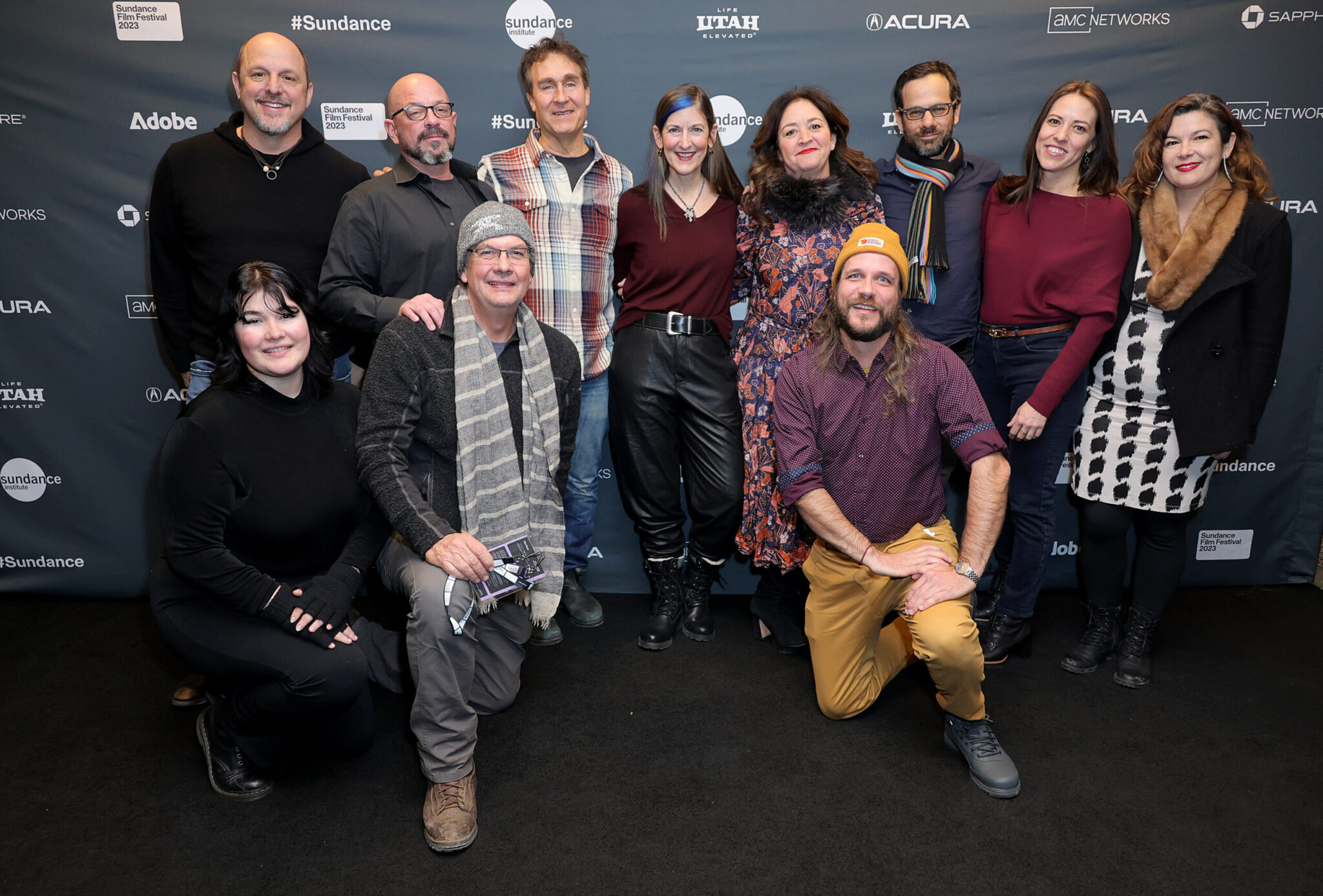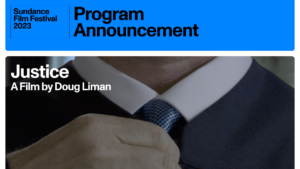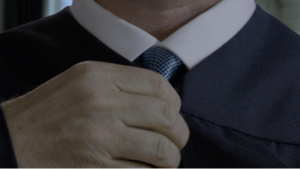(top row) Jim Moscou, Doug Liman, Amy Herdy, Liz Garbus, Dan Cogan, Cali Bagby, and Esther Shubinski (front row) SummerAnne Wadleigh, Thaddeus Wadleigh, and Richard Denmark attend the “Justice” Premiere at Park Avenue Theater. (Photo by Michael Loccisano/Getty Images)
By Stephanie Ornelas
“Why would you want to get involved with something so contentious?”
Christine Blasey Ford asks this question to director Doug Liman (The Bourne Identity, Go) in the opening scene of his debut feature documentary, Justice. It was a question Liman wrestled with, but he explains during the post-premiere discussion that he wanted to give Ford “a chance to ask the questions for once.”
The powerful documentary, which was announced as a part of the Festival slate only yesterday, takes a deep dive into the 2018 sexual assault allegations against Supreme Court Justice Brett Kavanaugh, using exposed text chains, exclusive interviews with Ford’s and Kavanaugh’s high school friends, former Yale classmates, journalists who covered the investigation, and one new, harrowing interview from a brave survivor: Debbie Ramirez.
When asked how they were able to keep the film under wraps for nearly seven months, Liman explains, “The initial cut of the film was significantly longer, and when Dan Cogan and Liz Garbus came on board [as executive producers], they helped us shape it…We were extremely diligent because, through talking to people and what had happened to them, we understood that secrecy was essential.”
The film is also a tale of bravery. Before audiences were given a chance to ask the filmmakers questions (and there were several), producer Amy Herdy took a moment to acknowledge Ramirez’s willingness to speak out. “I just want to give a nod to the amazing bravery of Debbie Ramirez.” The audience responded with a resounding applause.
Perhaps one thing that was especially eye-opening was a revealed recording of attorney Max Stier, who admits that he witnessed Kavanaugh trying to force himself on Ramirez at a party. “That was made during the week the FBI asked people to submit tips. Material like that was just shielded, sent to the White House, and never pursued. For me, that was probably the most shocking,” says Liman.
“The FBI is conducting this investigation, putting up a tip board, and telling people to send in their tips. 4,500 people took time out of their schedules and went through the effort to submit the tips, and we have them all. Physically, it’s hard to grasp how big a number 4,500 is until you physically try to comb through them. They’re heavily redacted. But the fact that those tips went either to the White House or the garbage can was shocking to me.”

Even more interesting, when an audience member asked if the filmmakers were aware that the FBI agent who led the investigation also went to Yale with Kavanaugh, Herdy responded, “Yes, he was friends with Brett Kavanaugh,” sending gasps throughout the entire theater.
So what does Liman hope to accomplish with this documentary?
“I kind of feel like the job ends with the film, and what happens afterwards is just so beyond my control. So, my thinking hasn’t really gone beyond the film,” he explains. “The truth matters. It matters now, it matters in the future. 100 years from now, this film will still exist, and maybe that’s it.”
Herdy, on the other hand, disagrees, noting that there’s still so much work to be done.
“Yeah, I’m not happy with that, sorry,” she laughs. “With all due respect, Doug. I do hope that this triggers outrage. I do hope that this triggers action, and I do hope that this triggers additional investigation with real subpoena powers.”
It’s worth noting that just 30 minutes after the film was announced, members of the production team were already getting phone calls and emails with fresh tips about the investigation, proving that Herdy might be right — the work has only just begun.







